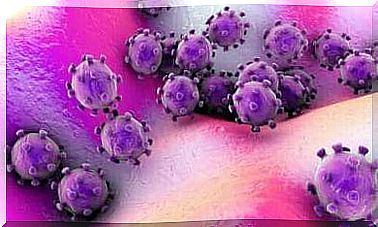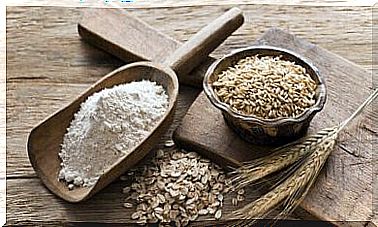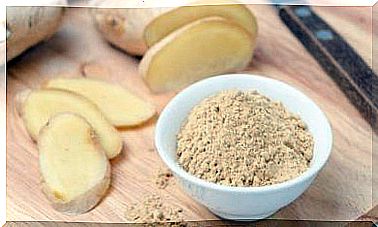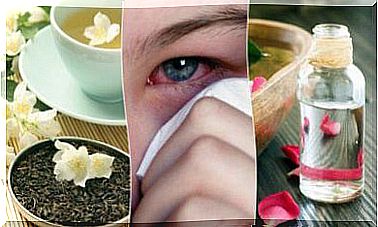Oxytocin, The “love Hormone “, Has A Dark Side You Should Know About

Few words represent something as intense, pure and magical as the feeling that comes from oxytocin, also known as the “love hormone”. It is at the same time very biological and emotional.
Oxytocin is sometimes known as the love hormone, the clamp molecule, the chemistry of happiness and also as the chemical formula for parents.
For example, oxytocin is most important at the time of birth. It plays a key role in initiating breastfeeding and helping to build the intense bond between mother and child. Undoubtedly, this bond is the key to the existence of humanity and that of many other mammals.
Therefore, this little love hormone, produced in the hypothalamus and secreted by the posterior pituitary gland, is one of the most well-known body substances out there. It is basically the chemical essence of love.
But what if we told you that the love hormone hides a side that is not entirely positive? Do you think that it is a not so healthy aspect that can have a negative impact on your emotional integrity?
We are sure it is a topic that many people would be interested in learning about. Here we will give you more information about this multifaceted hormone, so that you get a more complete overview of it.
The hormone of love and addictive relationships
If you have ever experienced an intimate relationship that was based on addiction, you should know that you probably lived under the influence of some of the darkest aspects of oxytocin. In this type of relationship, feelings of passion erase both identities and priorities. You may even be caught by the other person, forgetting important aspects of your own life.
It may seem like a simple metaphor and a somewhat simplified comparison. However , neuropsychologists actually usually compare this type of infatuation to being drunk or poisoned. In the situation we have described, it is almost like being drunk on an “overdose” of oxytocin. In this case, you become addicted to a love that hurts, but where you can not free yourself.
Oxytocin and social conditions
This chemical is actually classified as a nonapeptide (that is, a peptide that contains nine amino acids ).
- It acts as a hormone and as a cerebral neurotransmitter. It is thanks to this little peptide that we can make decisions related to our social interactions. Then we act in social ways by demonstrating qualities such as generosity, empathy or altruism.
- This is why it was not long ago believed that the oxytocin released by the brain was the most important “means” for reducing the responses of stress and anxiety that can be caused by daily social interactions, even with those we love most and who are closest to us. .
- Today, however, thanks to new research, it has been shown that oxytocin also hid a somewhat darker side. In addition, it works the other way around to promote less healthy relationships. In these , mutual obsession leads both parties slowly but surely down the path to self-destruction.
Oxytocin and alcohol: substances that, in excessive amounts, cause us to lose control
That love is sometimes a real chemical wreck is not just a poetic exaggeration – it is a clear reality.
- It is well known that the effects of oxytocin and alcohol share many similarities at the brain level.
- Both mediate the transmission of GABA neurotransmitters in the prefrontal cortex and the limbic structures. In addition, both are able to increase the effects of anxiety or stress. Both also have the effect of reducing the feeling of fear that we feel when we show certain behaviors.
- Under the influence of both , we feel safer, we feel more courageous, and we experience a greater desire to experiment.

Therefore, love based on a passionate euphoria and an almost morbid obsession is almost like being drunk. Thus , it makes it more difficult for us to find a sufficient balance or objective clarity about the situation.
Neurologists and psychologists have been fascinated by the intense effects that oxytocin can have on many people. But before you start thinking about creating and marketing a new drink where oxytocin replaces alcohol, you should know that it is not really a viable alternative. Nevertheless , the possibility of using it to treat certain conditions of depression as well as clinical disorders is a very real possibility.
The love hormone is a very powerful substance
We know that when we are in love, our brain releases a magical combination of dopamine, serotonin, noradrenaline … and the list goes on.
- Thanks to these neurotransmitters, we feel more energy, more passion, more desire to experiment…
- However , oxytocin is the drug that mediates all of this. It promotes the release of these chemicals which also stimulate the production of an additional, even more intense agent: phenylethylamine.
- This endogenous chemical compound belongs, as we may be surprised to learn, to the amphetamine family, and usually remains in the brain for approx. 4 years in concentrated amounts.

This may help explain the first period of intense passion, in which we are like satellites orbiting a planet, unable to see anything else that exists in the universe.
It is completely normal. However, it is a state where we should be careful not to lose our inner compass and forget where our north is.
While falling in love can be a magical experience, we should be careful never to compromise our own integrity and be completely trapped in the whirlpool of intense “intoxicating” emotions that come from a flood of the love hormone to the brain.









